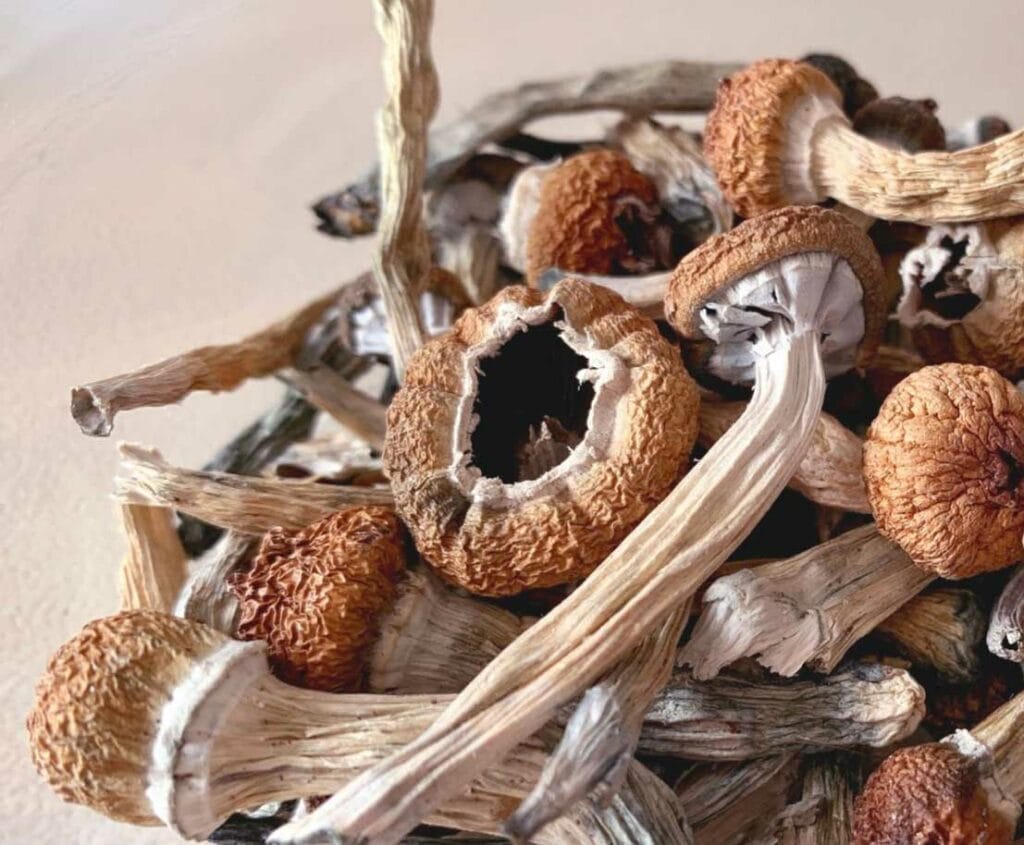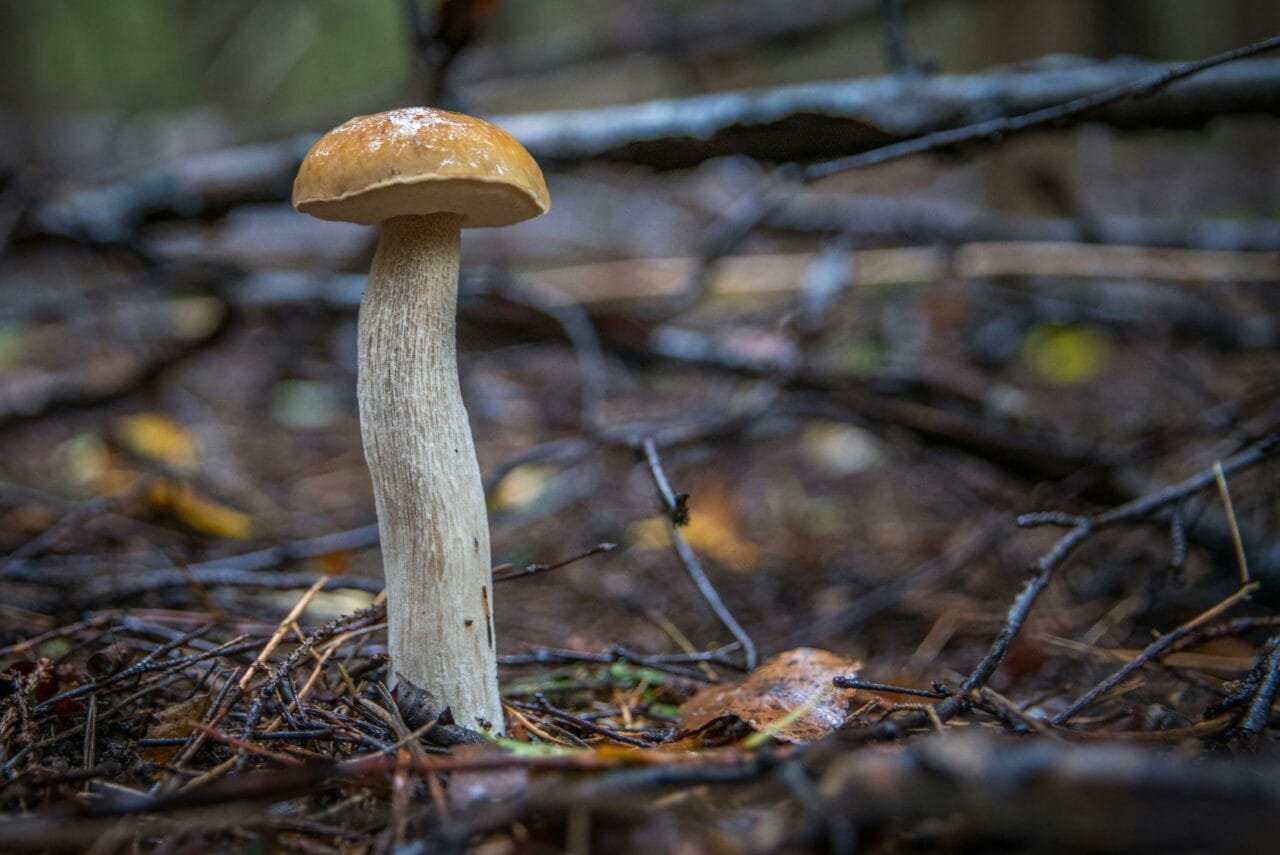Research into the impact of psilocybin on the human brain continues to reveal remarkable findings. A 2023 study by Washington University demonstrated that psilocybin can reduce activity in the brain area responsible for memory and perception for over a week. This extended disruption may be associated with the mood-boosting effects of the substance.
This recent finding paves the way for individuals with mental health issues, presenting a broader array of treatment options. The increased flexibility of the brain, coupled with the mood-enhancement effects, might offer more lasting relief compared to traditional medicines. Additionally, it is cost-effective to purchase it through shrooms online.
[toc]
Key Takeaways:
- Desynchronization acts as a reset button, allowing individuals with depression to establish healthier and more fluid neural connections.
- It aids in treating depression, anxiety, PTSD, and addiction by fostering neuroplasticity and modifying neural connections.
- Patients with depression have reported that a single dose can improve positivity, mood, and behaviour.
Delving Into Magic Mushrooms
These fungi are recognized for their psychoactive properties, specifically psilocybin and psilocin, which can trigger altered states of consciousness. These changes can lead to visual and auditory hallucinations, shifts in perception, and intense emotional experiences.
For hundreds of years, they’ve been utilized in various cultural and spiritual practices and are commonly referred to as “shrooms,” “mushies,” or “hongos.”
The Consciousness-Shifting Substance
The most intriguing aspect of these fungi is their consciousness-shifting compound. When ingested, it converts to psilocin, which interacts with serotonin receptors (5-HT2A receptor). This interaction induces alterations in brain connectivity and perception, resulting in a hallucinogenic effect and potential therapeutic benefits.
It disrupts standard connectivity, leading to enhanced communication between previously disconnected brain regions, promoting the formation of new profound, suggesting a more prominent role of psilocybin in altering consciousness and instigating mental agility. This temporary state of altered consciousness can result in deep insights that can be therapeutic for conditions such as depression, PTSD, and anxiety.
Health Canada has recognized this compound as a pioneering medicine, based on the extensive research and numerous clinical trials it has undergone.
Recent Research on Brain Activity Before, During, and After Consumption
A study was carried out by the Washington University School of Medicine to investigate the immediate and long-lasting neurobiological and psychological effects of psilocybin. The study aimed to comprehend how these substances affect synaptic connections and the durability of this impact.
Methodology
Healthy young adults were given psilocybin and methylphenidate on separate occasions, and underwent standard MRI scans (around 18 times) before, during, between, and after each dosage.
Functional MRI (fMRI) was utilized to monitor synaptic connections and activity at various stages. This allowed a comprehensive analysis of the immediate and persistent effects on the brain network.
Participants were asked to complete a simple auditory-visual matching task while inside the scanner. They successfully performed this task during the drug administration sessions.
Key Findings
- Instantaneous Changes: A significant disruption in connectivity across cortical and subcortical networks was observed, with changes exceeding thrice those seen with methylphenidate.
- Desynchronization: Network synchronicity, particularly in the “default mode network,” showed a significant decrease. This network includes interconnected regions like the thalamus, basal ganglia, cerebellum, and hippocampus, and is typically more active during self-reflection and mind-wandering than when paying attention to specific tasks.
- Task Effect: Despite the observed changes in functional connectivity, the participants’ responses during the auditory-visual matching task remained unchanged under the influence of the active substance. This implies that the changes in functional connectivity are not likely due to altered neurovascular coupling.
- Prolonged Effects: A continuous decrease in connectivity between the anterior hippocampus and DMN was noted for several weeks, but it reverted to normal after 6 months.
- Methylphenidate induced immediate changes that were less considerable and less frequently in relation to brain connectivity.
Insights from Experts
Dr. Joshua Siegel, a distinguished psychiatrist from Washington University School of Medicine in St. Louis and the principal author of the study, suggests that psilocybin encourages a more flexible way of thinking.
Improvements in connectivity could play a crucial role in managing depression. It could enhance the brain’s adaptability, paving the way for long-term cognitive changes. This desynchronization could act as a reset button for those suffering from mood disorders, fostering healthier and more dynamic connectivity.
How Psilocybin Affects the Brain
The active ingredient alters an individual’s perception of time and space and modifies their sense of connection to their environment. However, these subjective experiences typically dissipate quickly.
It impacts cells that react to serotonin, a vital chemical messenger. By temporarily activating receptors in high-density areas like the medial frontal lobe, it triggers long-lasting effects. This activation interrupts established routes and stimulates the formation of new connections.
Desynchronization was lessened when participants performed a basic word-picture matching task, as the default mode network was not active during this task. This could clarify why minimizing external stimuli—such as wearing eyeshades—can intensify engagement with the psychedelic experience.
Long-Term Effects on Brain Disruption
While the immediate effects recede once the drug wears off, the aforementioned study found that disruptions in connectivity between the DMN and the anterior hippocampus—a region associated with memory and emotion—can persist for several weeks.
This prolonged alteration could foster brain plasticity, potentially facilitating long-term changes in cognitive and emotional processing. These lasting experiences could enhance the therapeutic potential of the drug.
Dr. Petros Petridis, a psychiatrist at NYU Langone Center for Psychedelic Medicine, opines, “Psilocybin could offer a chance for change, which a therapist can then guide the patient through.”
Potential Advantages for Mental Health Conditions
The influence may also reach emotional processing, with alterations in the activity of brain regions involved in emotion regulation. For instance, it can affect the amygdala, a region in charge of processing emotions, potentially resulting in changes in emotional responses and mood.
These changes in emotional response could potentially address prevalent mental health issues that Canadians face.
- Depression: Regular sessions of medication over two months can significantly improve mood, attitude, and behaviour. This improvement is followed by a 14-month duration of moderate to high doses.
- Anxiety Disorders: It can potentially reduce anxiety, especially existential or end-of-life anxiety, by modifying perceptions of self and reality. This transformation can enable a deeper understanding and acceptance of personal fears.
- Post-Traumatic Stress Disorder (PTSD): It promotes quick and persistent reduction of emotional responses to traumatic memories by encouraging fear extinction. It could stimulate hippocampal neuroplasticity, thus enhancing the brain’s ability to form new connections and adapt.
- Obsessive-Compulsive Disorder (OCD): By disrupting rigid neural pathways and promoting cognitive flexibility, it can potentially reduce obsessive thoughts and compulsive behaviors.
- Substance Use Disorders: It may help fight addiction by providing profound insights into the nature of addiction and promoting a change in perspective.
Considering Magic Mushrooms to Help Mitigate Depression Symptoms
Are you looking for mushroom products to ease depression? This selection of Psilocybe cubensis, known for its use in spiritual and religious rituals, offers reliable strains.
| Dried Magic Mushrooms | Description | Effects |
| Blue Meanies | Characterized by a 4 cm wide smooth surface and is marked by blue bruising, hence its name. | Elation, hallucinations, joy, and prolonged laughter |
| Golden Teacher | Famous for its spiritual or shamanistic effects, it’s a well-regarded variant in the Psilocybe cubensis world. | Vivid colors, intense emotions, visual distortion, and a feeling of lightness or giddiness |
| Albino Zilla | Sturdy and thick, entirely spectral white with some dark bruising. | Encourages creativity, body buzz, sociability, euphoria, and positivity |
| Atlantic Treasure Coast | Naturally derived from the Southern Florida Gulf Coast, it has pale caramel-coloured caps. | Enhances mood, induces pleasure and visual enhancements |
| Brazilian Psilocybe Cubensis | Native to Brazil and several South American countries, it’s a superb option for first-timers. | Triggers euphoria, increased alertness, creativity, and a sense of comfort. |
In addition to dried psilocybin mushrooms, magic mushrooms can be consumed through edible shroom products, shroom tea, and other forms. Check out these handy products available for purchase:
- Wonder – Birthday Cake Chocolate Bar
- Wonder – 3000mg Cherry Cola Gummies
- Bright Future – 3000mg Dark Chocolate & Sea Salt
Address Your Anxiety, Depression and PTSD Safely with Online Shrooms
Recent advancements have enriched our understanding of how the active compound in Psilocybe cubensis affects the brain. A week-long disruption can result in a temporary shift in consciousness. This psychedelic journey can provoke profound insights and provide benefits for conditions like depression, PTSD, and anxiety.
Searching for a reliable online source to buy shrooms in Canada? Mushrooms Online Canada is committed to enhancing mental health by providing top-quality magic mushrooms as a potential therapeutic tool for anxiety, depression, and PTSD. We strive to explore the unique properties of these fungi with our meticulously curated selection of online magic mushrooms.
Frequently Asked Questions
Does combining Psilocybe with antidepressants enhance their effects?
At present, we lack sufficient evidence to verify a toxic interaction between antidepressants (SSRIs or others) and Psilocybes. The active compound doesn’t increase the risk of serotonin syndrome when administered with a single antidepressant. Most modern clinical trials involving shrooms either ask participants to gradually reduce their SSRIs or exclude them from the study.
Can Psilocybe shrooms be microdosed?
If you’d rather not experience the full psychedelic effects of dried shrooms, microdosing is an option to consider.
Microdosing is the practice of ingesting a very small and sub-threshold dose of psilocybin mushrooms, which is usually about 1/10th to 1/20th of the common recreational dose. Here’s a guide on how to microdose magic mushrooms:
- Procurement and Preparation: Obtain shrooms and pulverize them into a superfine powder.
- Determining Dosage: Approximately measure between 0.1 and 0.3 grams (100-300 mg) of the dried product.
- Formulate a Dosing Schedule: Adopt a consistent routine, for instance, administering the dose once every three days or following a two-day-on, one-day-off regimen.
- Measurement and Consumption: Use a precision scale for accurate measurements and prefer taking the dose on an empty stomach to maximize absorption.
- Monitor and Adjust: Document your experiences and adjust the dosage or schedule based on your personal observations.
Is it safe to buy magic mushrooms online for therapeutic use?
Buying online is typically safer than purchasing from unreliable sources.
- Ensure to review extensive information about the products, including their source and quality. Reliable sellers usually provide lab test results or other forms of assurance to verify the legitimacy and purity of their psychedelic mushrooms.
- Your transactions and personal details are protected with website encryption, securing your private and financial data.
- As a precaution against consuming harmful varieties, only purchase from trustworthy vendors. Verify customer reviews and contact the dispensary to validate their trustworthiness.
Related Articles You Might Find Engaging:





